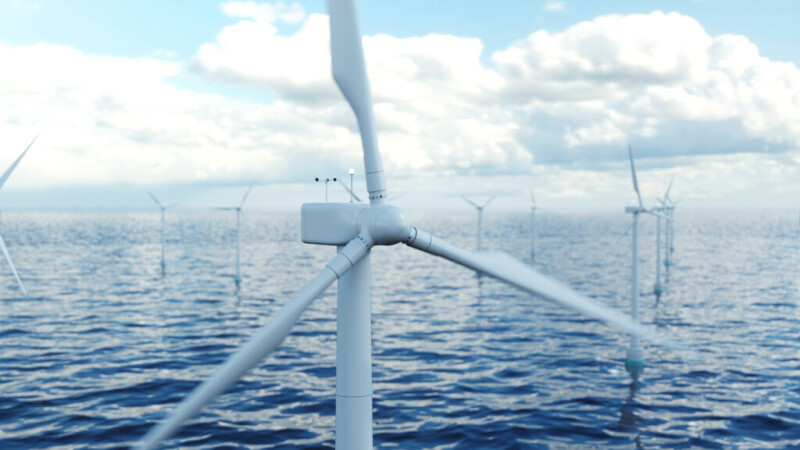A packed house at a Congressional hearing in the seaside Wildwood, N.J., convention center showed how criticizing the Biden administration’s offshore wind energy ambitions could be political gold for Republicans.
The local fire marshal ordered doors closed after about 400 people crowded in, leaving hundreds more in line outside during the March 16 hearing organized by Rep. Jeff Van Drew, R-N.J., and billed as “an examination into offshore wind industrialization.”
Van Drew’s southern New Jersey district includes beach resort communities and fishing ports where residents object to planned wind turbine arrays, with concerns ranging from the economic effects on tourism to commercial fishermen getting shut out of longtime fishing grounds.
“This is the coercive power of the state,” Van Drew told the audience in his opening statement. “They are not listening to us.
“It is time we examine the process,” he said. He centered the event on objections raised by critics, especially allegations that a dozen mid-Atlantic whale strandings since December could have been related to survey work on offshore wind power leases.
The National Oceanic and Atmospheric Administration has strongly denied those claims. The winter strandings of mostly humpback whales follow a trend since 2016 of increased mortality along the East Coast. Necropsies of recent strandings found evidence those animals were killed by ship strikes.
Van Drew invited other skeptical Republican congressmen to his hearing: Rep. Chris Smith, R-N.J., with his own Jersey Shore constituents; Rep. Scott Perry, R-Pa., who is taking a lead in calling for other probes of Biden administration policies; and Rep. Andy Harris, R-Md., a longtime critic of offshore wind.
“The fix is in,” Harris asserted several times, complaining federal officials have failed to respond to local concerns from coastal communities.
“This is a cover-up in real time,” charged Smith, who proposed a Government Accountability Office report on how offshore wind planning has been conducted.
Amid media coverage and political pressure, several Democratic senators got into the debate March 29, urging NOAA to put out more information about whale strandings, and offering to get the agency more resources.
A letter by senators Cory Booker and Robert Menendez of New Jersey, Richard Blumenthal of Connecticut, Jeff Merkley of Oregon, and Sheldon Whitehouse of Rhode Island made no specific mention of offshore wind power projects. But they urged “additional outreach and transparency in light of the public reporting on and speculation around the potential causes of these deaths.”
“We believe accessibility, transparency, and timeliness is of the utmost importance for NOAA’s whale injury and death reporting,” the senators wrote, asking for details on “the timeline and process for NOAA sharing information with the public when a whale is found dead and when necropsy results are complete” and if “NOAA has plans to strengthen its data-sharing practices with non-profit and government partners and the public.”
They asked the agency for “any challenges or barriers NOAA faces with efficiently determining a whale’s cause of death, as well as recommendations for congressional or administrative action needed to reduce these barriers.”
The next day, Van Drew succeeded in getting an amendment onto the House “Lower Energy Costs Act,” an assemblage of energy legislation including offshore wind, oil and gas that passed the Republican-controlled House of Representatives.
Van Drew’s amendment called for requiring “the Comptroller General of the United States to publish a report on all potential adverse effects of wind energy development in the North Atlantic Planning Are — including impacts on maritime safety, the economy, maritime environment and ecology, including species listed as endangered or threatened under the Endangered Species Act.”




